Farm to Fork 2020 Conference: Building Sustainable Food Systems Together
20.10.2020 00:00:00

On 15 and 16 October, the EU Commission honoured World Food Day 2020 by holding the 'Farm to Fork' Conference - a first of what is planned to be an annual gathering of European stakeholders to discuss progress towards EU sustainable food systems. The event saw the registration of over a thousand participants, who had the opportunity to follow the discussion and engage with other stakeholders thanks to the online platform.
 The event was organised around key debates, such as ‘Working Together To Transform Our Food Systems’ which saw the opening remarks by German Federal Minister of Food and Agriculture Julia Klöckner and the intervention in a panel discussion of Ester Asin Martinez - Director at WWF European Policy Office, together with Monique Goyens – Director General at BEUC (European Consumer Organisation), MEPs Herbert Dorfmann (EPP) and Anja Hazekamp (Greens), among others.
The event was organised around key debates, such as ‘Working Together To Transform Our Food Systems’ which saw the opening remarks by German Federal Minister of Food and Agriculture Julia Klöckner and the intervention in a panel discussion of Ester Asin Martinez - Director at WWF European Policy Office, together with Monique Goyens – Director General at BEUC (European Consumer Organisation), MEPs Herbert Dorfmann (EPP) and Anja Hazekamp (Greens), among others.
Another relevant moment was the presentation of the findings of a new Eurobarometer on consumer views on sustainable food systems. The event’s format includes thematic workshops such as ’Building An EU Legislative Framework For Sustainable Food Systems’ and ‘Helping Consumers Choose Healthy Diets From Sustainable Food Systems And Reduce Food Waste’ which Euro Coop closely followed and interacted via the Q & A.
The concerns Euro Coop signaled included:
EU Code & Monitoring Framework for Responsible Business and Marketing Conduct
The Issue: F2F Strategy introduces the positive commitment of developing an EU code and monitoring framework for responsible business and marketing conduct in the food supply chain.
Question: How does the Commission plan to ensure this contributes effectively to the establishment of a level playing field and will the foreseen monitoring activity be accompanied by measures to discourage non-compliance, such as economic sanctions?
Supporting Sustainable Business Models towards the Green Transition
The Issue: The strategy does not mention the importance of ‘green’ business models that promote/prioritise short supply chains or the importance of revitalizing rural areas. Operators employing so-called models which are alternative to profit maximization exist across the EU, an example being consumer co-operative since 1844, but they are not sufficiently valorised. Responsible retailers such as consumer co-ops prioritise social benefits and place sustainability at the heart of business decision-making. However, challenges persist, especially in rural areas.
Question: In the attempt to facilitate the green transition, does the Commission foresee targeted support for the responsible retail operators? Perhaps a study to identify and assess the existing challenges and propose tailored measures, something that the EESC has already outlined in recent opinions?
Supporting Consumers
The Issue: Consumer information and education are indispensable to promote the uptake of healthy lifestyles and to countering food waste/loss at household level.
Question: Would the Commission be open to investigate further the positive role played by consumer co-operatives in this respect, specifically in light of the educational mission they fulfil in society and ensuing their fundamental difference with other private retailers, this being something already outlined in recent EESC opinions?
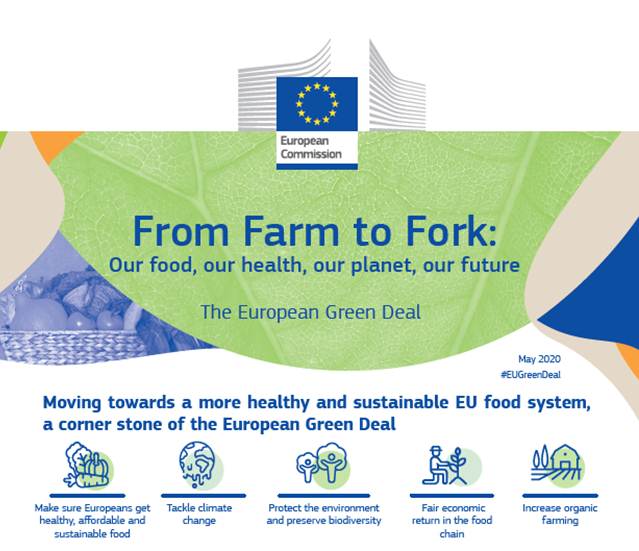
Overall, the Conference failed to address these and other central issues of importance pertaining to the particularities of achieving the green transition. Speakers also highlighted the Strategy’s stronger focus on the farm side rather than the fork side, as most indicators and targets concern the production end of the food chain. They argued that in the absence of clear objectives underpinned by concrete actions (e.g. education and information), consumers would be left on their own in the aim of achieving higher sustainability at the “fork” side of the Strategy.
A grand plan required an adequate process
Considering the great number of stakeholders potentially impacted by the Farm to Fork Strategy and the pressing need for holistic co-operation to collectively build a sustainable Europe that ‘must leave no one behind’, it is imperative to reflect on the efficiency of relying on a single annual debate among EU institutions, public authorities, NGOs, business and farmers representatives, experts and citizens.
The Farm to Fork Strategy envisions a shift in the formulation of policy objectives and targeted legislations with the clear intent to transform food systems through a holistic approach. This cannot be achieved if we continue to address the relevant issues in silos which fragments the public debate.
The need for an EU platform to monitor the F2F implementation
During the past months, Euro Coop has advocated, together with other members of the EU Food Policy Coalition, for the establishment of a dedicated EU platform to monitor and assess the implementation of the EU F2F Strategy. An ad hoc governance body would be crucial to effectively address the Strategy’s priorities. Specifically, this should rely on a balanced composition and transparent working procedures to ensure business and non-business stakeholders equal opportunities to engage the discussion on the Strategy’s Action Plan. The governance body would represent an important mechanism for a results-oriented implementation process, addressing all the objectives of the Farm to Fork Strategy.
However, at present the EU Commission does not foresee implementing such an oversight body but intends to continue with the existing public consultation instruments for gathering stakeholders’ feedback.
Looking Ahead
Euro Coop welcomes the opportunity to discuss further the implementation of the Strategy and to provide the insight of consumer co-ops on the actions that are most relevant to the retail sector. Our initial input to the consultation can be found here.
Whilst we fully support the positive commitment of developing an EU code and monitoring framework for responsible business and marketing conduct in the food supply chain, it is imperative to ensure this facilitates the establishment of a level playing field.
Consumer co-ops, already bound to act in conformity with a set of principles and values, are disadvantaged when competing with other business operators who prioritise profit over responsible business practices. In light of this, we would support the EU code of conduct to be accompanied by measures discouraging non-compliance, such as administrative or economic sanctions.
In addition, the Strategy does not mention the importance of ‘green’ business models that prioritise short supply chains and commit to supporting and revitalizing rural areas. The consumer co-operative model is not yet sufficiently valorised across the EU as a positive alternative for conducting food retail. Moreover, considering consumer information and education are indispensable to promote the uptake of healthy and sustainable lifestyles, a broader debate is needed to investigate the positive role played by consumer co-operatives, among others.
In the attempt to facilitate the green transition, we would like to call on the EU Institutions for a constructive debate on how to bring about targeted support for responsible retail operators and ensuring their fundamental difference with other private retailers is acknowledged.
Latest Sustainability Policy news
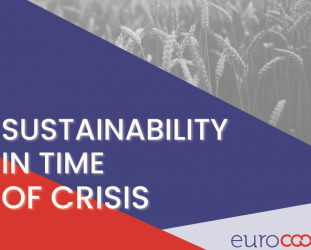
Sustainability in Time of Crisis
Since its inception, the new Commission led by President Ursula von der Leyen committed to set...
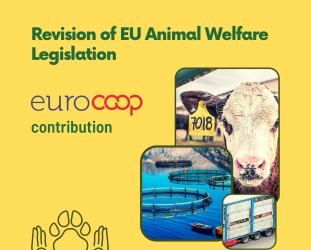
Euro Coop contribution on the Revision of EU animal welfare legislation
After adopting the Farm to Fork strategy in 2020, the European Commission launched a...
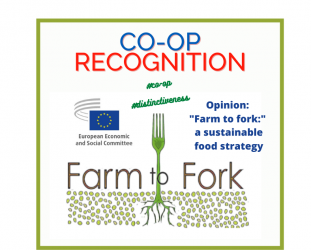
Consumer Co-ops Recognised As Key Enablers for a Truly Sustainable Farm to Fork Strategy
In parallel to the acknowledgment of the role of consumer co-operatives in the shift towards...
Latest Sustainability Policy stories
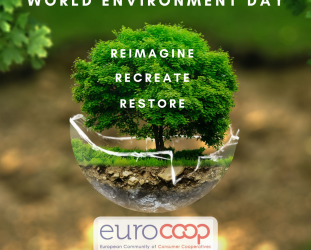
World Environment Day 2021
This year’s World Environment Day marks a perfect opportunity to...
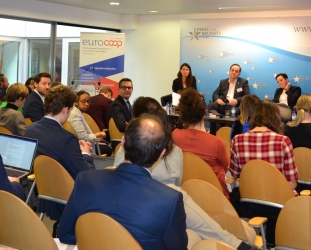
EVENT HIGHLIGHTS: Ethically Sound Supply Chains
Introduction On 23 January, Euro Coop hosted in Brussels the Roundtable ‘...
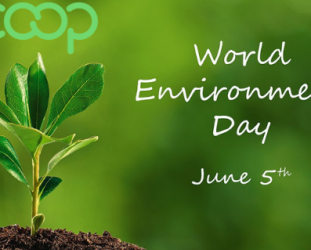
Euro Coop Celebrates World Environment Day
Consumer co-operatives operate on an established set of values and principles, among which there...

